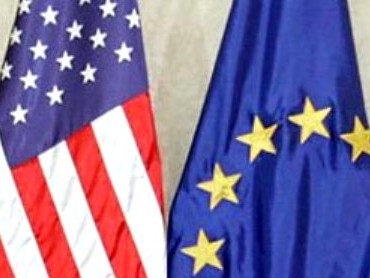Op-Ed by Alyona Getmanchuk, Director of the Institute of World Policy for Kyiv PostThese days, I often hear the opinion that the European Union should take Belarus, Moldova and Ukraine under its patronage since the United States has its hands full all over the world. This opinion is even expressed informally by U.S. government representatives.
But the European Union and the U.S. will have much more effective ways to influence Ukraine, if they act not separately as Europe and the USA, but together, representing the West as a whole. Both Washington and Brussels have opportunities.
The benefits that the EU offers are obvious: These are geographic proximity, tight economic relations and a positive perception of the EU by the Ukrainian political elites and population.
Washington has its advantages also. Firstly, the current Ukrainian authorities respect only two things: money and power.
The EU, in the eyes of Ukrainian decision-makers, seems to be weakened. It is so not only because of the fact the 27-nation bloc has a hard time taking a unanimous position. The other reason is that Ukrainian policymakers believe that “big money” can influence EU representatives.
If authorities did not manage to “buy” a positive resolution from the European Parliament, they gained favor through expensive dinners and cordial conversations with individual members of the European Parliament.
It is generally assumed in Kyiv that money works with professional EU politicians while, in the U.S., money only helps with individual professional lobbyists.
The other advantage of the United States is that it has always been distant from former Prime Minister Yulia Tymoshenko, the symbol of the 2004 Orange Revolution, and the most irritating factor for the current Ukrainian administration.
Tymoshenko’s disappointment with Washington, however, is no less than that of President Viktor Yanukovych. That is why the U.S. is perceived in Kyiv as an unbiased actor, whereas the many statements and actions taken by Brussels are seen through the lens of partner cooperation of the Bloc of Yulia Tymoshenko with the European People’s Party.
And last but not least, Washington has always placed the emphasis on the democratic development of Ukraine, while many EU members in the last five years have focused on political stability and maintaining good relations with Russia. The Ukrainian government claims it has successfully met both of these imperatives.
So the EU, to a certain extent, has no real ammunition. While the EU has doubts about Ukraine’s membership aspirations, Ukraine also doubts the sincerity of European considers about Ukraine’s undemocratic trends. Some in Ukraine think the concerns are a convenient way to postpone talks about EU membership.
As for the U.S., Harvard University professor Joseph Nye rightly pointed out recently what WikiLeaks made clear: American diplomats talk about democratic values not only in public, but also in private conversations. The Ukrainian authorities have always found such talks about democratic values odd, but peculiar to Americans.
To hear such talks from the Germans or the French would be very odd indeed for Ukrainians. Ukrainians think these nations are not as interested in promoting democracy as they are in investment climate and political stability.
Moreover, Yanukovych still badly needs continuous political dialogue with key Western leaders and U.S. President Barack Obama in particular. The logic is clear: the better relations Yanukovych has with the West, the more confident he feels in relations with the East. The U.S. should keep this in mind.
A relevant example is the candidacy of the U.S. representative at the big conference dedicated to the 25th anniversary of the Chornobyl tragedy, scheduled to take place in April in Kyiv.
It would be great if U.S. Vice President Joe Biden could pay such a visit, provided that some preconditions are met by the Ukrainian government.
One such precondition could be reconsideration of the pre-trial jailing of opposition politicians (including the former head of the customs service and former interior ministry, among others). They should be released on their own recognizance and pledge not to leave the jurisdiction.
Another precondition could be the approval by the Verkhovna Rada of an election law ensuring equal representation of all political forces at the parliamentary elections.




Comments theme
Comments themeComments themeComments themeComments themeComments themeComments themeComments themeComments themeComments themeComments themeComments themeComments themeComments themeComments themeComments themeComments themeComments themeComments themeComments themeComments.